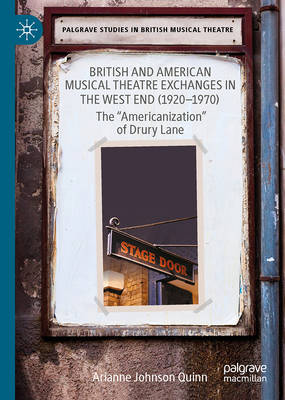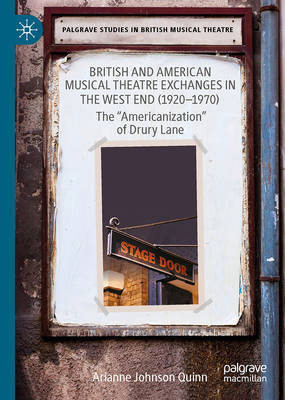
- Retrait gratuit dans votre magasin Club
- 7.000.000 titres dans notre catalogue
- Payer en toute sécurité
- Toujours un magasin près de chez vous
- Retrait gratuit dans votre magasin Club
- 7.000.0000 titres dans notre catalogue
- Payer en toute sécurité
- Toujours un magasin près de chez vous
British and American Musical Theatre Exchanges in the West End (1924-1970)
The "Americanization" of Drury Lane
Arianne Johnson QuinnDescription
This monograph centres on the history of musical theatre in a space of cultural significance for British identity, namely the Theatre Royal, Drury Lane, which housed many prominent American productions from 1924-1970. It argues that during this period Drury Lane was the site of cultural exchanges between Britain and the United States that were a direct result of global engagement in two world wars and the evolution of both countries as imperial powers. The critical and public response to works of musical theatre during this period, particularly the American musical, demonstrates the shifting response by the public to global conflict, the rise of an American Empire in the eyes of the British government, and the ongoing cultural debates about the role of Americans in British public life. By considering the status of Drury Lane as a key site of cultural and political exchanges between the United States and Britain, this study allows us to gain a more complete portrait of the musical'scultural significance in Britain.
Spécifications
Parties prenantes
- Auteur(s) :
- Editeur:
Contenu
- Nombre de pages :
- 283
- Langue:
- Anglais
- Collection :
Caractéristiques
- EAN:
- 9783031146626
- Date de parution :
- 25-10-23
- Format:
- Livre relié
- Format numérique:
- Genaaid
- Dimensions :
- 148 mm x 210 mm
- Poids :
- 508 g

Les avis
Nous publions uniquement les avis qui respectent les conditions requises. Consultez nos conditions pour les avis.






